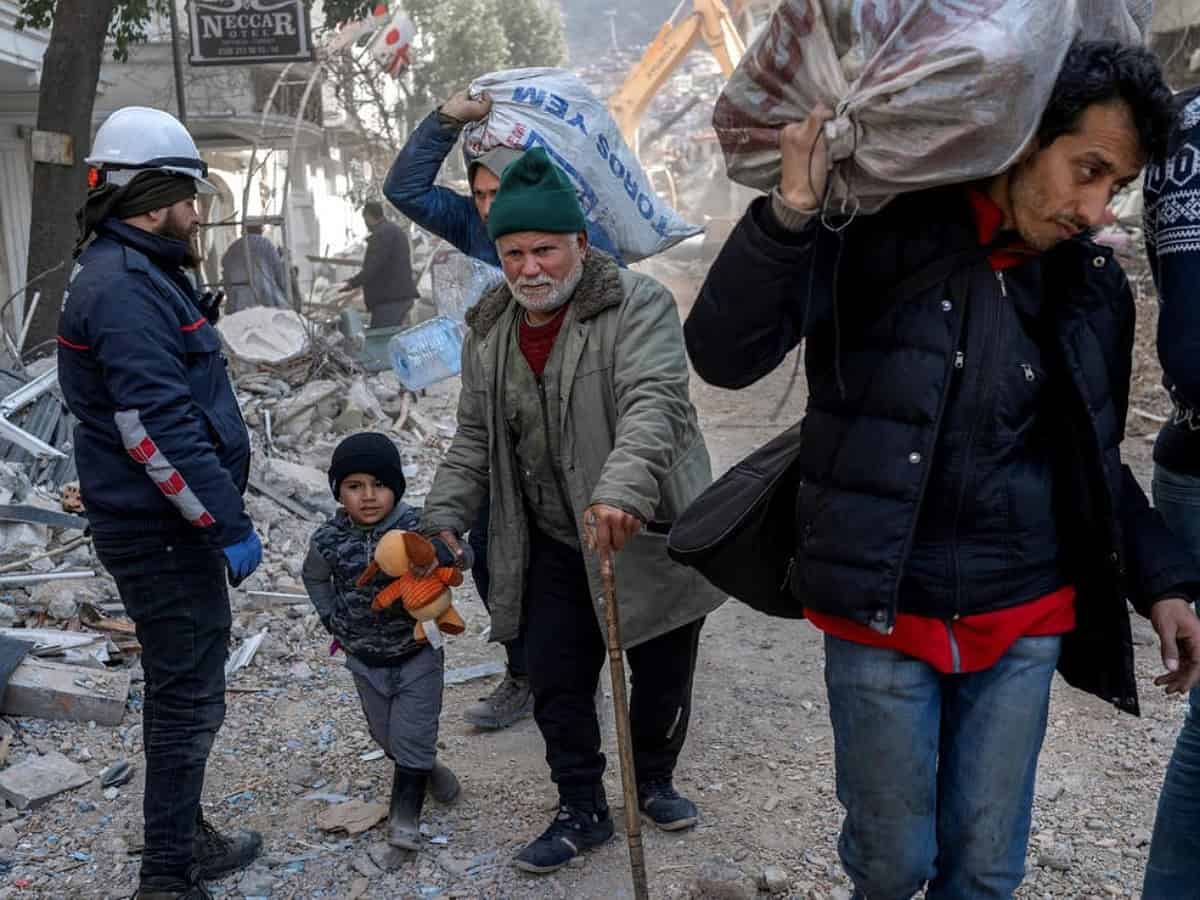
Ankara: The devastating earthquakes that shook southern Turkey and northern Syria was the “worst event” to hit the region in a century, a senior official from the United Nations said.
“What happened here on Monday, the epicentre of the earthquake, was the worst event in 100 years in this region,” Martin Griffiths, UN Under-Secretary-General for humanitarian affairs and emergency relief coordinator, told reporters in the Turkish province of Kahramanmaras on Saturday.
More than 100 countries have sent emergency response teams to Turkey, but “we’re going to need more than that,” Griffiths said.
The UN would launch the appeal to raise money for agencies to come and help the people who’ve been affected, he added.
“We have a clear plan tomorrow (or) the day after to give an appeal for a three-month operation to help the people of Turkey with humanitarian assistance, and we will do some similar one for the people of Syria,” he said.
As they are coming to the end of the rescue phase, the UN official expressed concern for the second phase of the disaster, Xinhua news agency reported.
“The second phase of a natural disaster of this size is often a medical one, where we have huge worries here and in Syria, of the health problems which have been going on treated,” he noted.
Turkey’s response to the disaster was “extraordinary,” Griffiths added.
The death toll from Monday’s devastating earthquakes climbed to 22,327 in Turkey, while another 80,278 injuries were reported in the country, Turkish Health Minister Fahrettin Koca announced on Saturday evening.
Search and rescue efforts in ten quake-hit 10 provinces of Turkey have now begun to turn to debris removal on the sixth day of the disaster. Rescue teams from across Turkey and around the world were still trying to find survivors in the rubble of toppled buildings and pulled them out against all odds. However, while the number of casualties is soaring, the number of injured pulled out of the rubble was so few on Saturday.
In a statement, the Turkish Medical Association warned about infectious diseases that may occur after the earthquake. Damage to infrastructure such as electricity, water and sewerage increases the risk of water and food-borne diseases, the statement said.
Risks increase for acute respiratory infections such as influenza and coronavirus, along with the possibility of contact-transmitted diseases such as scabies, lice, fungi and diarrhoeal diseases, it added.
At least 160,000 people, including foreign teams, were on the field for search and rescue efforts, Turkish President Recep Tayyip Erdogan said on Saturday. All the state dormitories of universities will be reserved for earthquake victims, and university students will have distance learning until the summer, he noted.
Turkish Interior Minister Suleyman Soylu slammed Germany and Austria because their teams have suspended their efforts due to security threats, and criticized them for “slandering” Turkey.
“Austria’s search and rescue team left the job with the claim of battering … From the first day (of the quake), 416 incidents took place. In the six days before the earthquake, 586 events occurred,” in the region, the Turkish Minister said.
“As many as 230 people have been detained so far, there are more than 20 arrests. Our friends take the security of the logistics warehouses, the security of the debris fields, the security of the tent sites,” he added.
(Except for the headline, the story has not been edited by Siasat staff and is published from a syndicated feed.)



